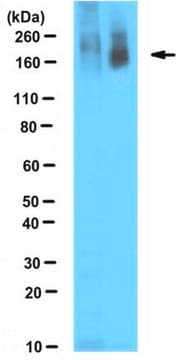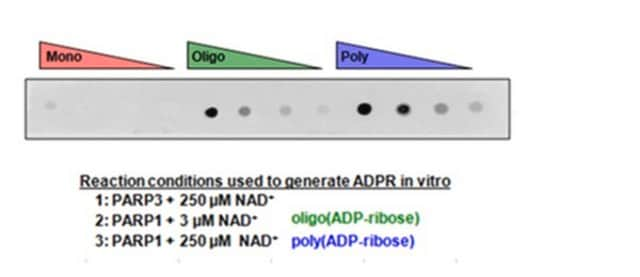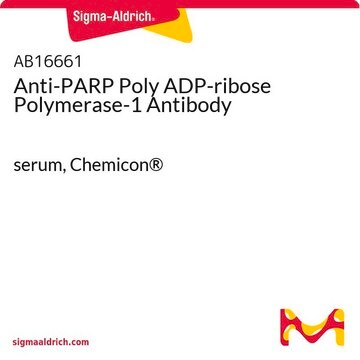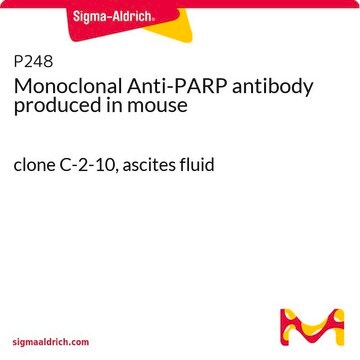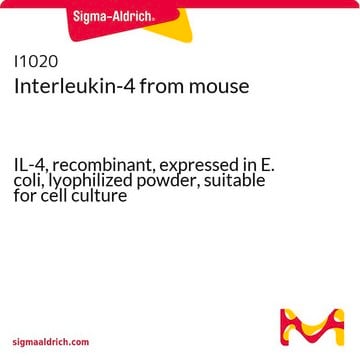AM80
Anti-PAR (Ab-1) Mouse mAb (10H)
liquid, ≥95% (SDS-PAGE), clone 10H
Synonym(e):
Anti-Poly (ADP-Ribose)
About This Item
Empfohlene Produkte
Biologische Quelle
mouse
Qualitätsniveau
Antikörperform
purified antibody
Antikörper-Produkttyp
primary antibodies
Klon
10H, monoclonal
Assay
≥95% (SDS-PAGE)
Form
liquid
Enthält
≤0.1% sodium azide as preservative
Speziesreaktivität
human, Drosophila, rat, mouse
Hersteller/Markenname
Calbiochem®
Lagerbedingungen
OK to freeze
avoid repeated freeze/thaw cycles
Isotyp
IgG3
Versandbedingung
wet ice
Lagertemp.
−20°C
Posttranslationale Modifikation Target
unmodified
Allgemeine Beschreibung
Immunogen
Anwendung
Immunocytochemistry (5-20 µg/ml)
Verpackung
Warnhinweis
Physikalische Form
Rekonstituierung
Hinweis zur Analyse
Normal mouse IgG
Etoposide-treated HL-60 cells
Sonstige Hinweise
Rechtliche Hinweise
Sie haben nicht das passende Produkt gefunden?
Probieren Sie unser Produkt-Auswahlhilfe. aus.
Lagerklassenschlüssel
11 - Combustible Solids
WGK
WGK 1
Flammpunkt (°F)
Not applicable
Flammpunkt (°C)
Not applicable
Analysenzertifikate (COA)
Suchen Sie nach Analysenzertifikate (COA), indem Sie die Lot-/Chargennummer des Produkts eingeben. Lot- und Chargennummern sind auf dem Produktetikett hinter den Wörtern ‘Lot’ oder ‘Batch’ (Lot oder Charge) zu finden.
Besitzen Sie dieses Produkt bereits?
In der Dokumentenbibliothek finden Sie die Dokumentation zu den Produkten, die Sie kürzlich erworben haben.
Unser Team von Wissenschaftlern verfügt über Erfahrung in allen Forschungsbereichen einschließlich Life Science, Materialwissenschaften, chemischer Synthese, Chromatographie, Analytik und vielen mehr..
Setzen Sie sich mit dem technischen Dienst in Verbindung.
